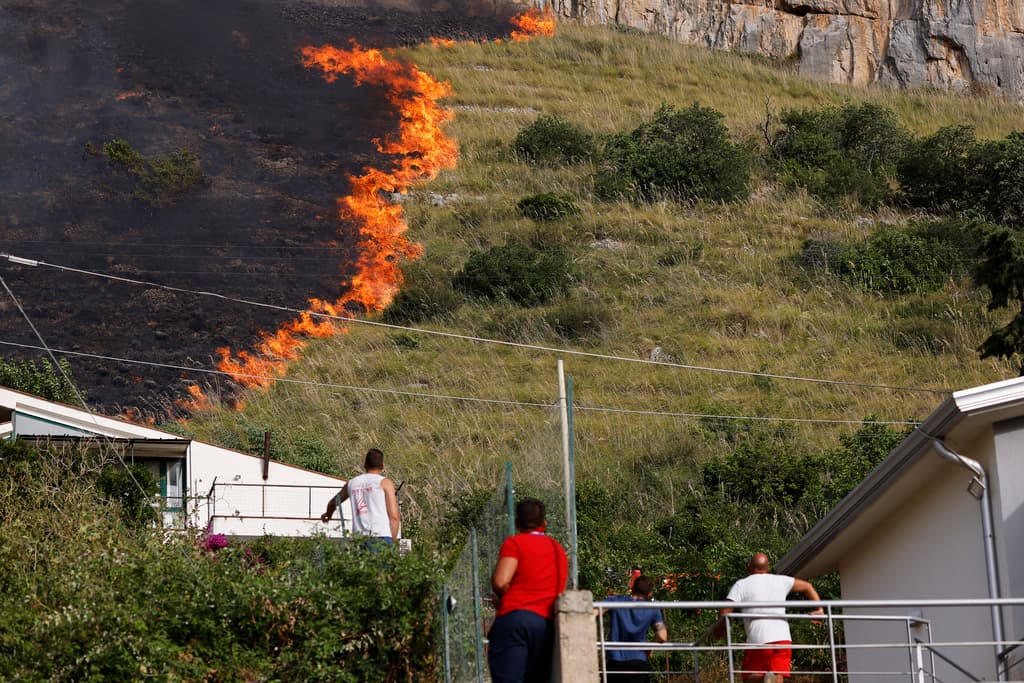On the holiday island of Sicily, it is hot and dry. Too dry. As early as March, the island declared a state of emergency after the dry winter.
Experts warn that it could become one of the worst water crises the country has experienced.
Every morning, Sicilian sheep farmer Luca Cammarata looks up at the sky in hope of seeing some clouds on the horizon that might bring a few drops of water. On his farm, it has not rained for several months.
If it continues like this, I will have to slaughter my animals and close my farm.
During the last half of 2023, only 150 millimeters of rain fell on Sicily. This year, the island may experience the worst drought in over 30 years, reports Euronews.
A third could become desert
Farmers have so far lost over one billion euros, equivalent to over eleven billion Swedish kronor. The drought is driving young people away from the profession and from the island, according to the association of young agricultural entrepreneurs. The water shortage has already cost over 30,000 jobs in southern Italy, according to Coldiretti, Italy's largest agricultural association.
Angelo Mannará is a farmer on Sicily and is struggling to make ends meet.
We are facing a situation that is more catastrophic than ever. We have nowhere to turn. Our water sources have dried up, which means we cannot give water to our animals. How can we continue? he says to The Guardian.
Since 2003, Sicily's rainfall has decreased by over 40 percent. Christian Mulder, professor of ecology and climate crisis at the University of Catania on Sicily, paints a dark picture.
By 2030, a third of Sicily will be a desert.
The reason is climate change, and the island is still dependent on the winter rains that are becoming increasingly rare.
Over 8,000 kronor – for water
The decreased rainfall is not the only reason for the low groundwater levels. The lack of maintenance of water pipes has had major consequences. Over 50 percent of the water used on Sicily in 2020 was lost due to poor water pipes, according to Italy's national statistical institute, Istat, writes EU Observer.
Water costs are increasing, and are mainly falling on the citizens.
The province of Enna on Sicily is one of the poorest provinces in all of Italy, but has one of the highest water rates on Sicily, with an average annual fee equivalent to over 8,000 kronor. At the end of June, the mayor announced that water would be rationed to every other day.
For a fifth of the island's inhabitants, rationing is now in effect, and they are bracing themselves for another hot summer.






